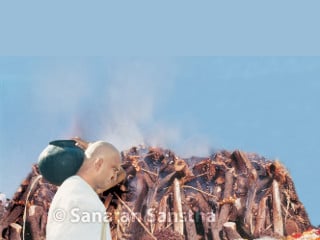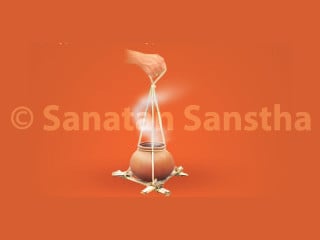After the death of a person, many a times it is seen that, the funeral rite is performed merely as a formality set by the Scriptures or as a part of fulfilling duty towards the family. Most people do not know its importance or the underlying spiritual science. When a person understands the precise science underlying an act, his faith in the act increases, he realises its importance and this induces him to perform the act with enhanced faith.
With regard to the funeral rite, in the following article explains what is a sūtak.
1. Meaning of sūtak
The specific period of impurity applicable to the members of the family lineage and relatives of a person (after the death of the person) is known as sūtak.
2. Rules pertaining to application of sūtak
-
To the family members of the dead, sūtak is applicable for a period of ten days, while to the performer of the last rites it is applicable for twelve days, until the ritual of sapinḍikaraṇ (shrāddha performed on the 12th day).
-
The period of sūtak applicable to other relatives (For example – maternal uncle, nephew, paternal aunt etc.) depends upon the relation with the dead.
3. Restrictions to be followed during sūtak
A person undergoing the period of sūtak should not touch other people, should not perform any religious or auspicious acts, should not participate in any social activity and should not have food with others.
4. Purification
After the period of the sūtak is over, the person affected should purify himself by bathing and sipping panchagavya (Mixture of cow’s milk, curd, ghee, urine and dung).
Reference : Sanatan’s Holy Text, ‘Death and post-death rites’


 Rituals to be performed prior to and during cremation of a dead body
Rituals to be performed prior to and during cremation of a dead body Rituals to be performed after cremation till the 13th day after death
Rituals to be performed after cremation till the 13th day after death In which direction should the dead body be placed before taking it to the crematorium ?
In which direction should the dead body be placed before taking it to the crematorium ? Rituals after death as per Hinduism
Rituals after death as per Hinduism